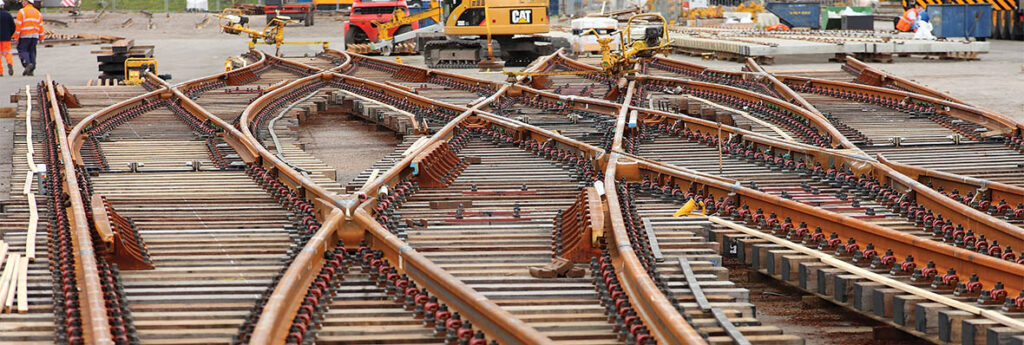Britain is facing its biggest rail strikes in decades after last-minute talks between a union and train companies failed to reach a settlement over pay and job security. And unions are warning of a summer of strikes as soaring inflation hits the pay packets of workers across the economy.
Up to 40,000 cleaners, signalers, maintenance workers and station staff are due to walk out for three days this week, starting today (Tuesday), as well as Thursday and Saturday. The strike is expected to shut down most of the rail network across the country, with London Underground subway services also hit by a walkout on Tuesday.
The Rail, Maritime and Transport Union branded employers’ latest offer “unacceptable” and said “the strike action scheduled this week will go ahead.”
Secretary-General Mick Lynch said rail companies had “proposed pay rates that are massively under the relevant rates of inflation, coming on top of the pay freezes of the past few years.”
Transport Secretary Grant Shapps said the strike would cause “mass disruption,” with only about 20% of services able to operate.
Shapps placed blame for the strike squarely on unions, which he said were resisting much-needed changes to make the railways “fit for the post-COVID world.”
“This strike is not about pay,” Shapps told lawmakers. “It’s about outdated unions opposing progress.”
UK passenger numbers remain below pre-COVID-19 levels, and train companies, which were kept afloat with government support during the pandemic, are seeking to cut costs and staffing.
Unions have urged the government to get involved to resolve the dispute. They accuse Prime Minister Boris Johnson’s Conservative administration of standing on the sidelines so it can blame unions, and the left-of-centre opposition Labour Party, for the disruption.
Unions say the government, which sets the rules for train companies and owns infrastructure operator Network Rail, has not given the firms enough flexibility to offer a substantial pay increase.
“The dead hand of this Tory government is all over this dispute,” said Lynch, the union chief.
Unions are warning of a summer of strikes as soaring inflation hits the pay packets of workers across the economy.
Millions of people in Britain, like those across Europe, are seeing their cost of living soar. Salaries have not kept pace with inflation, which has hit 9% and is forecast to rise further, as Russia’s war in Ukraine squeezes supplies of energy and food staples including wheat. Prices were already rising before the war, as the global economic recovery from the COVID-19 pandemic fueled strong consumer demand.
Lynch said he expected other sectors to strike later this year.
“I think there are going to be many unions that are balloting across the country because people can’t take it anymore,” he told Sky News. “We’ve got people doing full-time jobs who are having to take state benefits and use food banks. That is a national disgrace.”
Treasury minister Simon Clarke said workers should get “a sensible pay increase,” but that too big a raise would spark a wage-price spiral driving inflation even higher.
Compounding the travel misery in the UK, Heathrow Airport said it was asking airlines flying from Terminals 2 and 3 to cut 10% of flights on Monday. The request came after reports emerged Friday of a huge backlog of baggage at the London airport.
Several European airports have scrapped flights in an attempt to reduce delays. Budget airline easyJet said Monday it was “consolidating” flights because of “operational issues” at airports including London Gatwick and Amsterdam’s Schiphol, which have both cut the number of flights they will handle over the summer.

